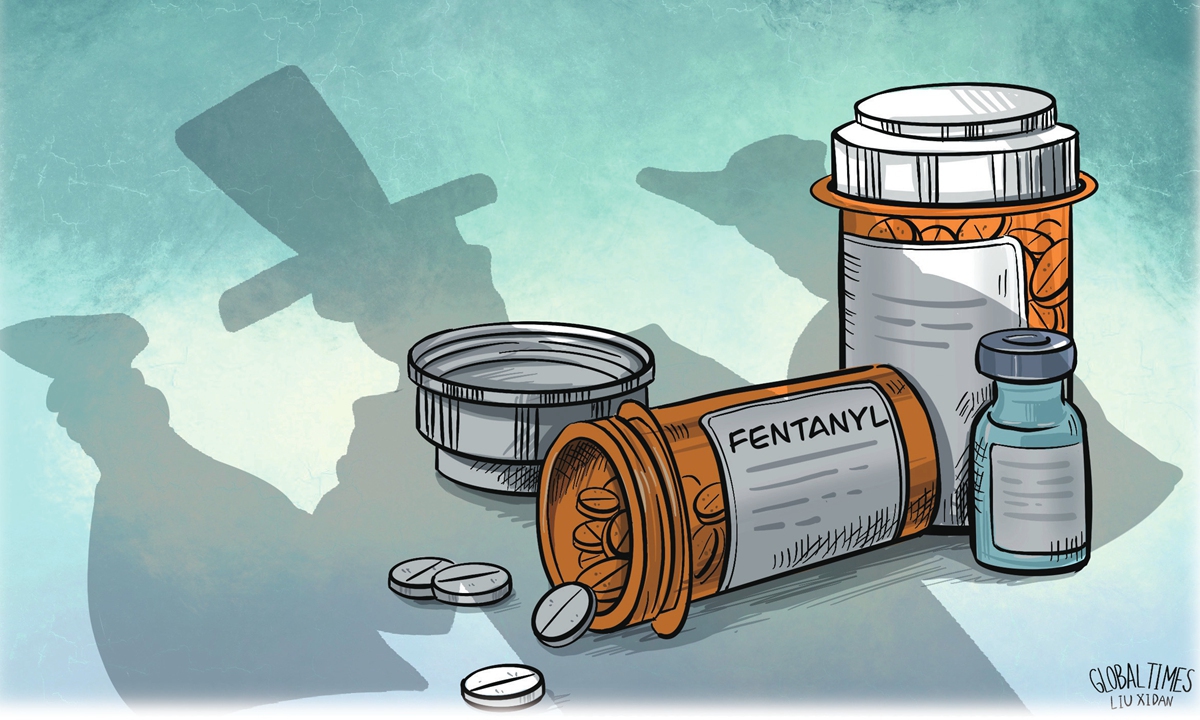Recently, the US Justice Department charged a company in Hubei, China, and its executives, for allegedly manufacturing chemical precursors used to produce fentanyl and xylazine for export to the US.
According to the indictment released by US federal prosecutors, the Hubei company sold 11 kilograms of fentanyl precursors to a US buyer between 2016 and 2023. The indictment claims these chemicals were labeled as other products. The buyer was not a drug trafficker but was an undercover federal agent, prosecutors said.
It was a transnational fishing operation.
As of press time, there has been no response from the Chinese company yet. But an indisputable fact is that the US Justice Department, disregarding the relevant cooperation agreements between China and the US, has overstepped its jurisdiction by implementing long-arm jurisdiction over Chinese companies within China’s borders, seriously undermining China-US cooperation on fentanyl control.
US Attorney Martin Estrada stated that this indictment is part of the US Justice Department’s efforts to combat the fentanyl supply chain.
Who gave the US such long-arm jurisdiction? This is a repeat of the US Justice Department’s old tricks.
On June 23 of last year, the US Justice Department indicted four Chinese companies and eight Chinese nationals associated with these companies on charges including trafficking fentanyl precursors, and it even conducted law enforcement operations in third countries.
The Chinese Foreign Ministry clearly stated that US law enforcement personnel ensnaring Chinese nationals through “sting operation” in a third country, and blatantly pressing charges against Chinese entities and individuals, is typical arbitrary detention and unilateral sanction, which is completely illegal. It seriously harms the basic human rights of the Chinese nationals and the interests of the Chinese companies concerned.
However, it appears that the US has not learned its lesson, once again ignoring China’s warnings. Such actions by the US will seriously undermine the essential mutual trust that has developed between the two sides over the past year or two, and they must bear the consequences.
How can China maintain genuine cooperation with the US under such a one-sided approach?
The US government is eager to curb the proliferation of fentanyl because this new type of drug has caused thousands of American deaths. However, fentanyl precursors are widely used chemicals in multiple production fields, such as pharmaceuticals and pesticides. Moreover, US manufacturers have been constantly changing the precursors of fentanyl, and new precursors are not on the control list.
Most importantly, the US’ control has failed because the drug problem is primarily a social issue driven by significant demand. Blaming external factors for internal causes is a sign of government incompetence.
Cooperation between China and the US in controlling fentanyl has made continuous progress in recent years.
Since the meeting between the Chinese and US leaders in November 2023, both sides have resumed cooperation in drug control.
In January this year, China and the US restarted the Counternarcotics Working Group, the first time this mechanism has been resumed since 2019. Law enforcement departments from both countries had multiple exchanges in 2024 to discuss how to combat transnational drug crime networks jointly.
These facts show that China and the US have established a foundation for cooperation and a mechanism of mutual trust in fentanyl control. The US has also expressed through various channels that the collaboration has had a positive effect on controlling fentanyl.
However, the US Justice Department’s long-arm jurisdiction fishing operation shows that the US does not value such cooperation.
This kind of unilateral long-arm jurisdiction operation highlights the double standards of US hegemonic law enforcement and will inevitably lead to China’s doubts about US sincerity. Any unilateral action may be counterproductive, exacerbating tensions in China-US relations and affecting cooperation between the two countries in other areas.
As the world’s two largest economies, China and the US should set an example of cooperation on important issues such as fentanyl control and jointly safeguard global public health security.













